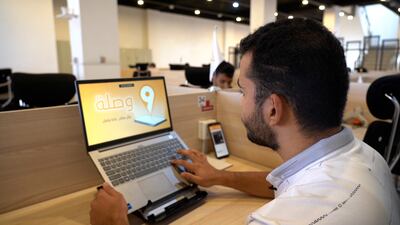Five years after Mosul was liberated from the clutches of ISIS, the task of rebuilding Iraq’s second city continues to be a challenge.
Mosul is one of the Arab world’s most historically and culturally significant cities. But by July 2017, much of it was reduced to rubble by months-long fighting between ISIS and Iraqi forces, the US and other allies. Freedom from the tyranny and violence of a terror group that had occupied the city for three years came at a high cost, with up to 11,000 civilians killed and more than 50,000 houses damaged by the end of the campaign.
At the time, the reconstruction cost for Mosul and the rest of the Nineweh province was estimated to be about $5-7 billion. Five years later, however, large parts of the city remain in disrepair. The airport lies in ruins and full-fledged hospitals are few and far between. As The National reported, a lack of funds, inefficient bureaucracy and corruption are mostly to blame.
But at the heart of Mosul’s reconstruction story, amid inadequate government support, are the resilience, dynamism and imagination of its 3 million residents, many of whom are rebuilding their homes and livelihoods with limited resources and funds, sometimes having to reach into their own pockets.
Residents such as Bassam Mohammed Hashim told The National about having to re-use bricks from damaged houses to rebuild. It is the sort of inventiveness in the face of adversity that is amply evident across the city, in all walks of life.

Fewer government jobs due to cost-cutting by the state have led young, tech-savvy entrepreneurs to start their own businesses. Wasla, a taxi-booking service, is one of almost 100 start-ups dotting the landscape today in the technology, transport, tourism, education and entertainment sectors. As Wasla’s founder, Omar Sinan, 22, said: “Entrepreneurship not only solves problems, but also creates jobs that the government can no longer offer, as well as develop the economy.”
Indeed, with its market projected to grow over the next decade, as the city is gradually rebuilt, there is plenty of space, scope and capital, particularly foreign capital, for youngsters to start their own businesses.
The revival of Mosul is a happy and hopeful reminder of generosity and shared humanity when it is needed most. Whether it is the UAE’s assistance to rebuild the city, including Al Nuri Mosque, the EU’s support for start-up incubators, and the UN Development Programme’s myriad reconstruction projects, the world has stood behind Mosul as it emerges from the rubble.
Sadly, however, the past five years have also been an indication of the Iraqi government’s inability to fulfill its responsibilities. There have been mitigating circumstances, such as a drop in oil revenue from $92bn in 2014, when ISIS captured Mosul, to $66bn in 2017, when it was liberated. That year, government revenue was $22bn short of the World Bank's estimated $88bn necessary for the nationwide post-war reconstruction. Political dysfunction in Baghdad, as it struggles to form a government, has further undermined its ability to deliver.
However, with crude prices at an all-time high today the government has a narrow window of opportunity to get its finances in order and use the funds to speed up the process of rebuilding all its devastated regions, including Mosul. Surely the last thing both Mosul and Baghdad want is a return to the kind of neglect that led to the very rise of ISIS a decade ago.
Emma Sky's Iraq essay: A tour through Iraq's side streets, seeking the country's path to peace

